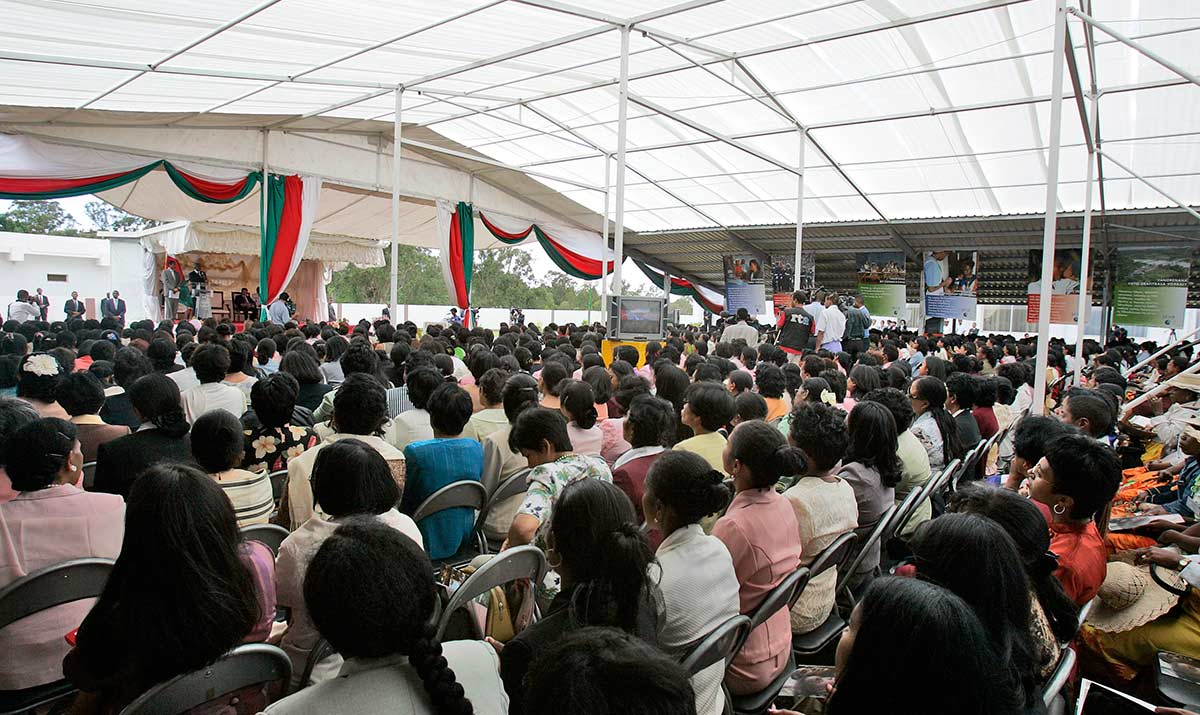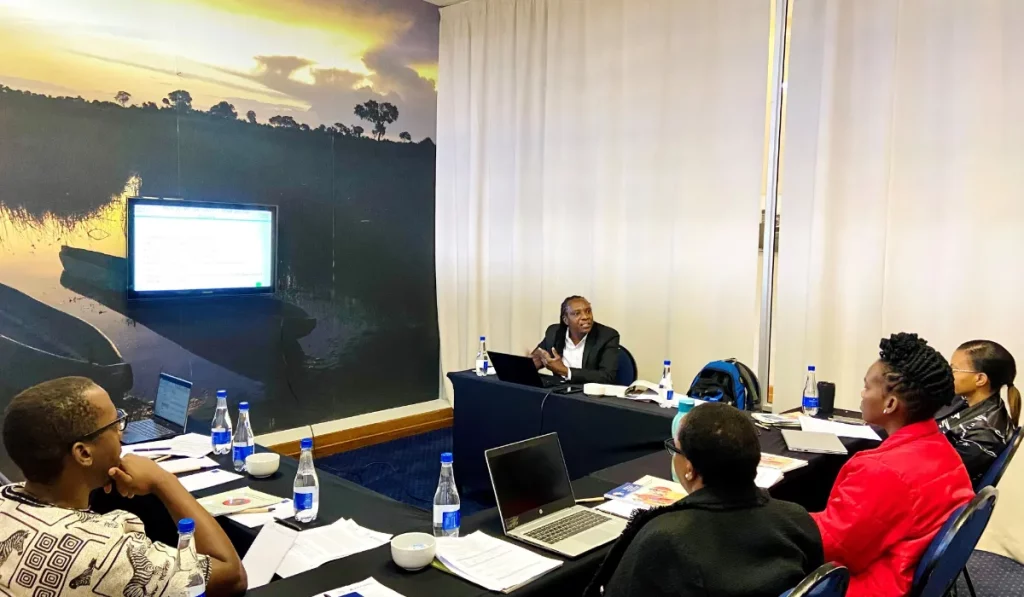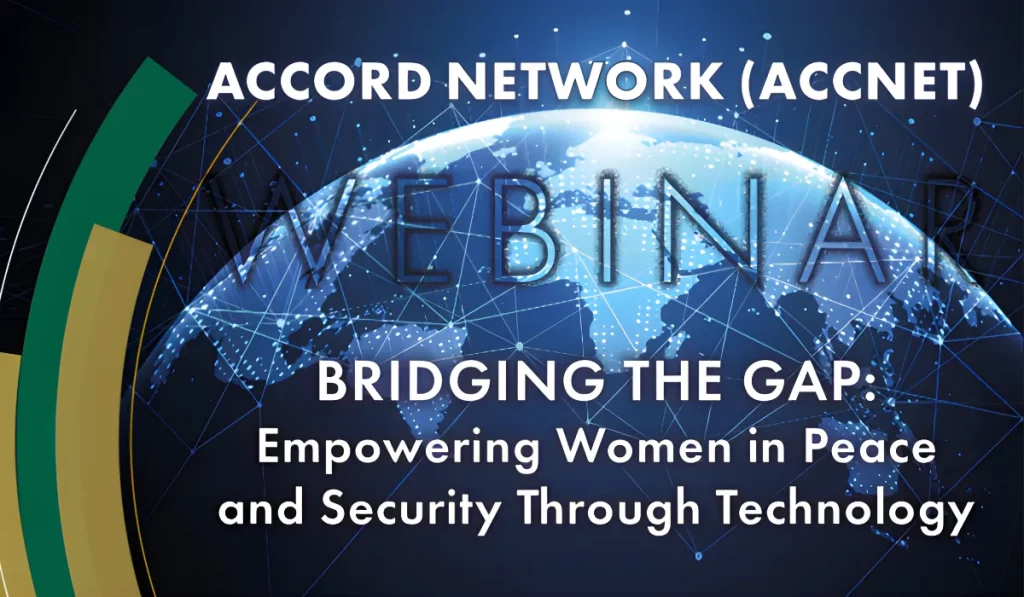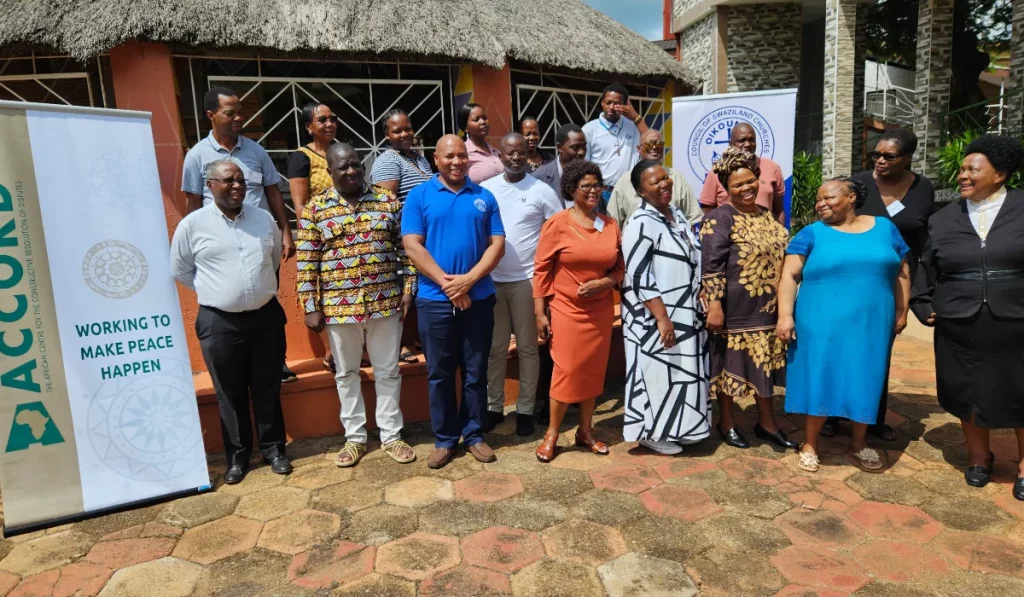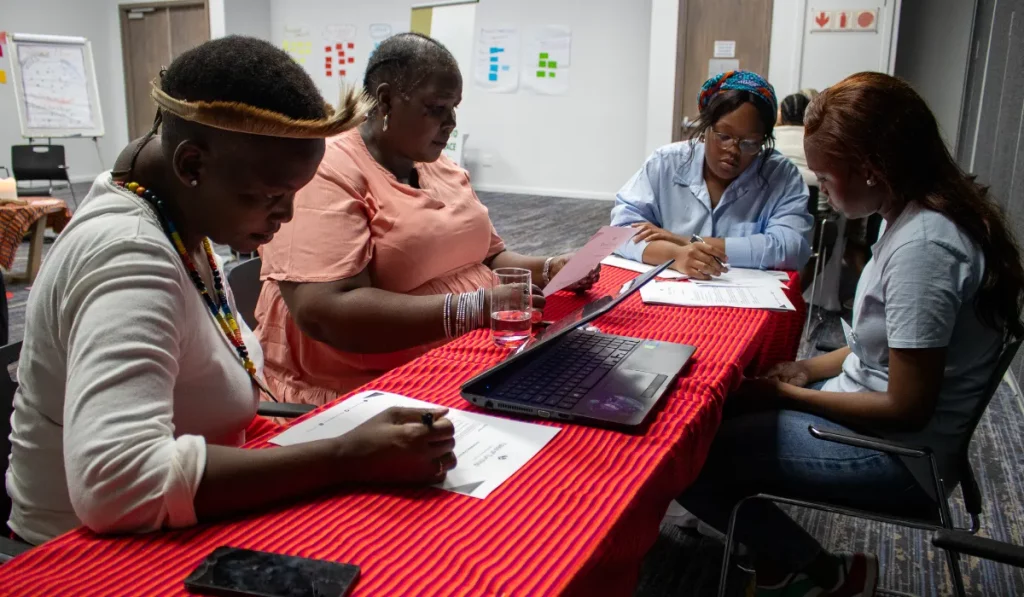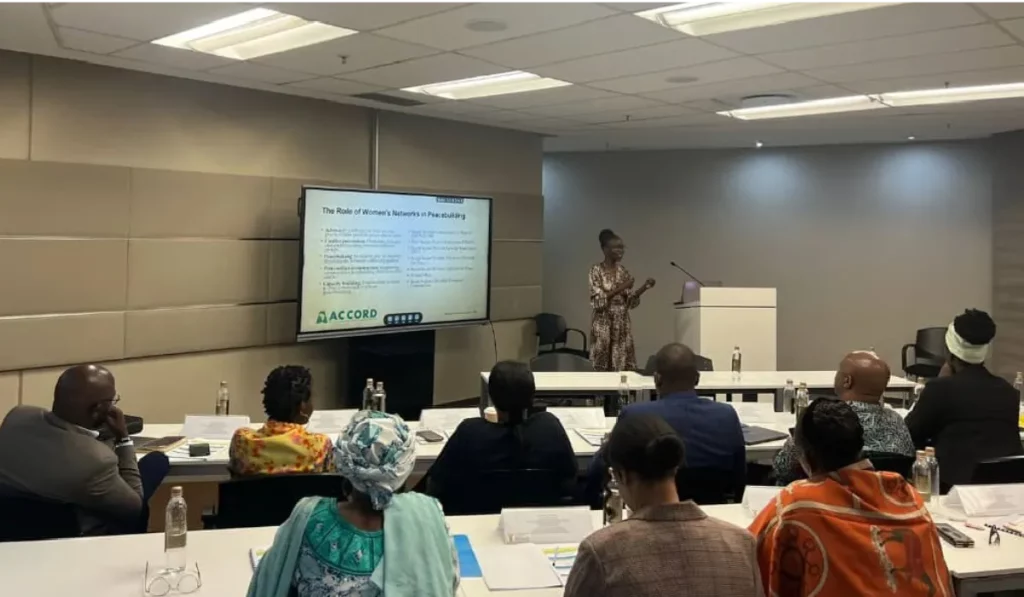In order to strengthen the institutional and organisational capacity for building peace, security, and gender equality across Africa, ACCORD attended a workshop hosted by the Centre for Conflict Resolution (CCR). The workshop created a space for participants to gain a better understanding of patriarchy, gender socialisation, and their effects on women and men, and how to address these both generally and in each of our institutions.
Ms Lesley Connolly of the Peacebuilding Unit and Mr John Ahere of the Peacemaking Unit attended the event from 12-14 March 2014 in Johannesburg, South Africa. Other organisations in attendance included the South African Human Rights Commission (SAHRC), the South African Ministry of Defence, The Centre for the Study of Violence and Reconciliation (CSVR), The South African Broadcasting Corporation (SABC) and the Southern African Development Community (SADC). This event targeted the engagement of institutions within South Africa, but the workshop forms part of a larger project undertaken by the CCR which aims at strengthening the capacity of institutions and organisations responsible for building peace, security, and gender equality in Eastern, Southern, West, and North Africa. Two follow-up trainings will take place in 2014: a second will be held in the DRC in order to target similar institutions in that country; a third will consolidate all trainings (as well as similar workshops in East Africa), by bringing together the key decision-makers who have participated in the earlier sessions. By creating a space for the participating institutions to learn about gender dynamics in institutions around South Africa, this workshop contributed to further aligning institutional capacity to understand and implement the UN Security Council Resolution 1325 of 2000 on women, peace and security. The long-term objective of the CCR’s project is to ensure that more women are meaningfully involved in peace processes, conflict resolution, and peacebuilding activities across Africa. By brainstorming and sharing strategies to increase meaningful participation and equality of both genders in peacebuilding processes, the participants will be better equipped to address these concerns in their institutions and local communities.
Through the workshop, the participants realised that, given the normative perception of gender roles, the achievement of gender equality within organisations and within society is a process that requires relentless advocacy, time, resources and long-term strategy. The workshop contributed to the participants’ increased awareness so as to contribute to this achievement. This awareness grew among participants through experience sharing on how different socialisations and cultural perceptions can enhance patriarchy and, resultantly, impede sustainability of peacebuilding efforts. Creatively designed activities also allowed participants to display a sense of empathy for the other gender, notable a fishbowl focus group discussion.
This workshop contributed to this process, especially by addressing the effects of deeply-rooted patriarchy and gender socialisation on women and men; and how to address these matters in general and within the participating institutions and organisations.

